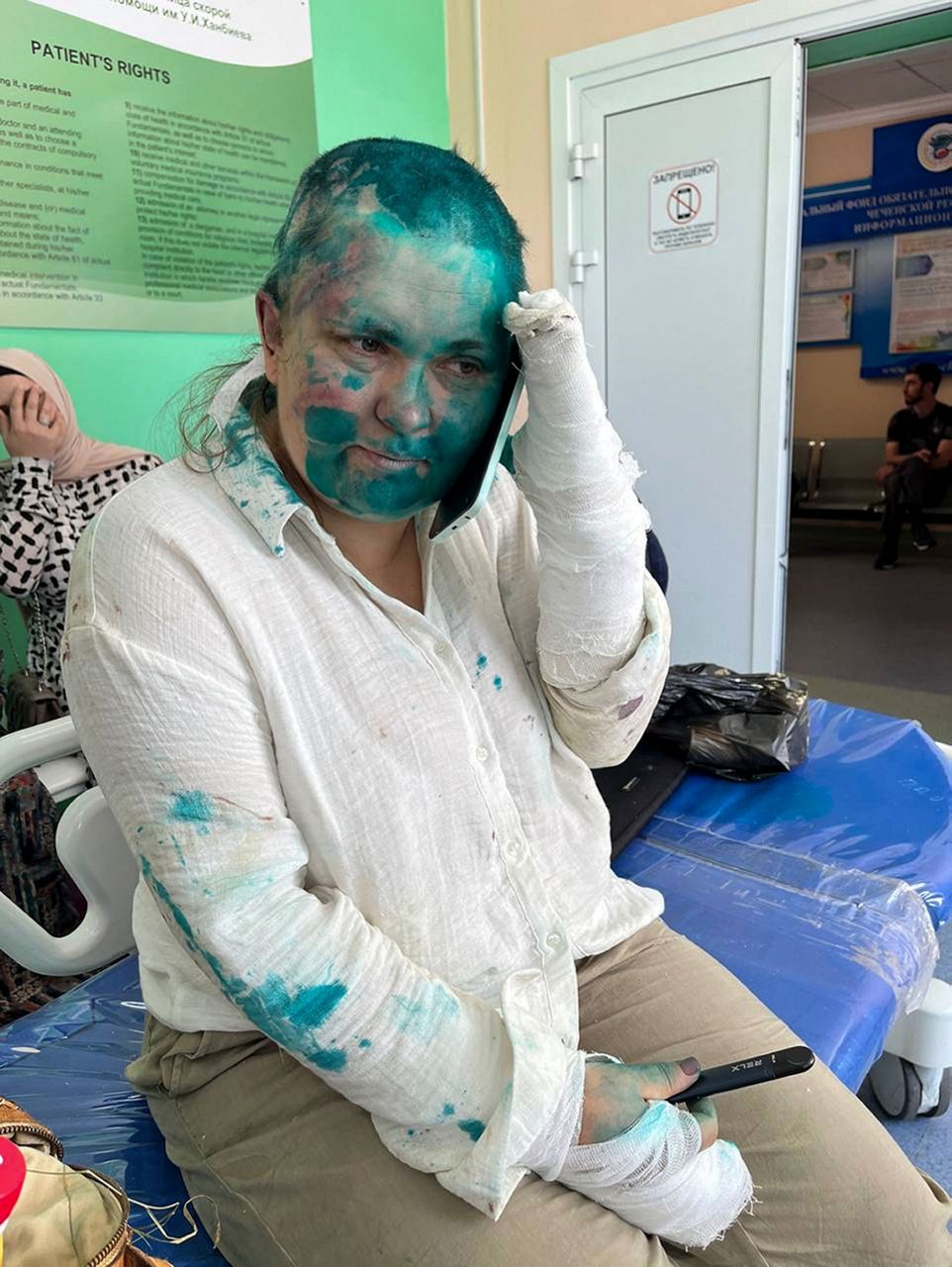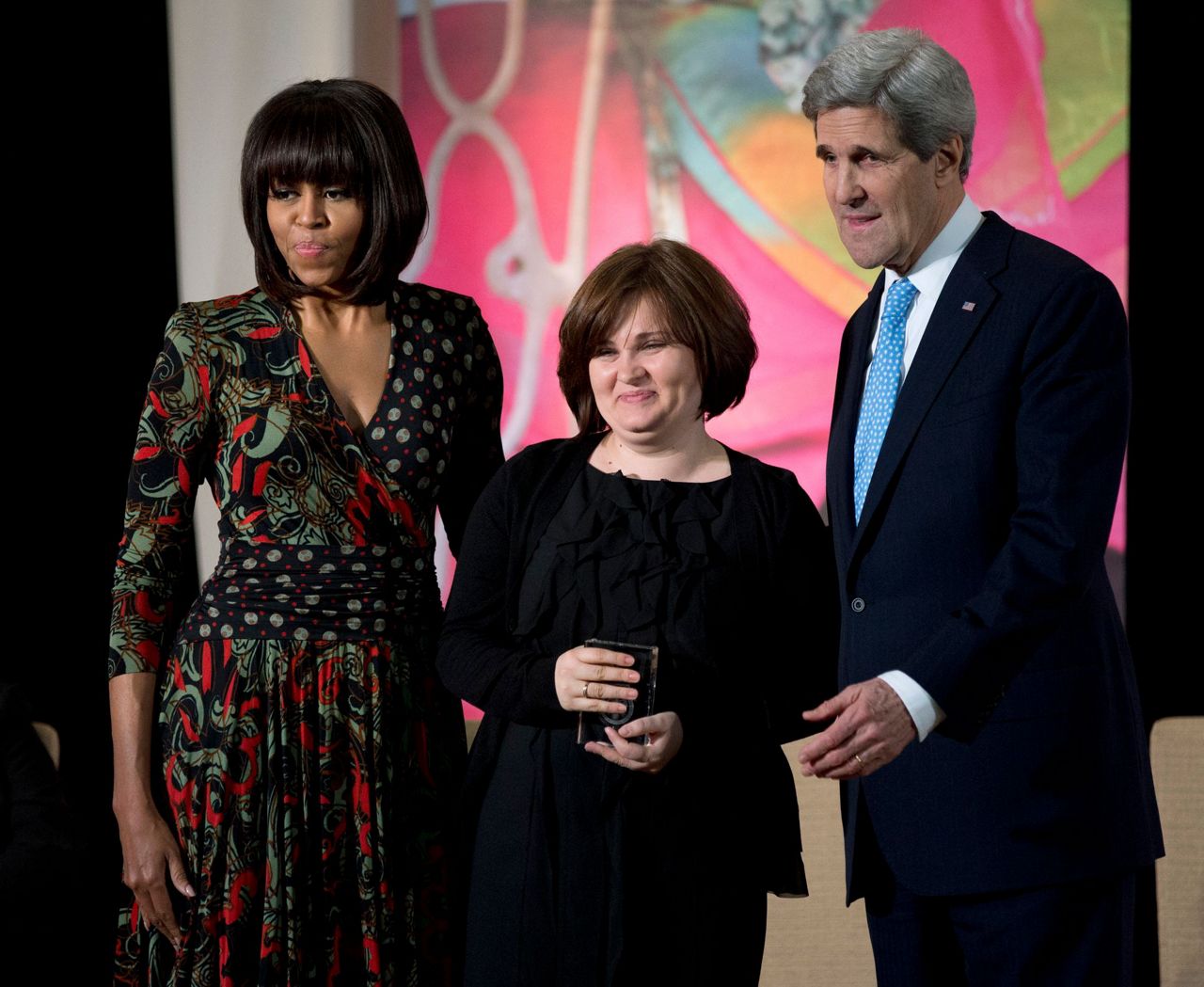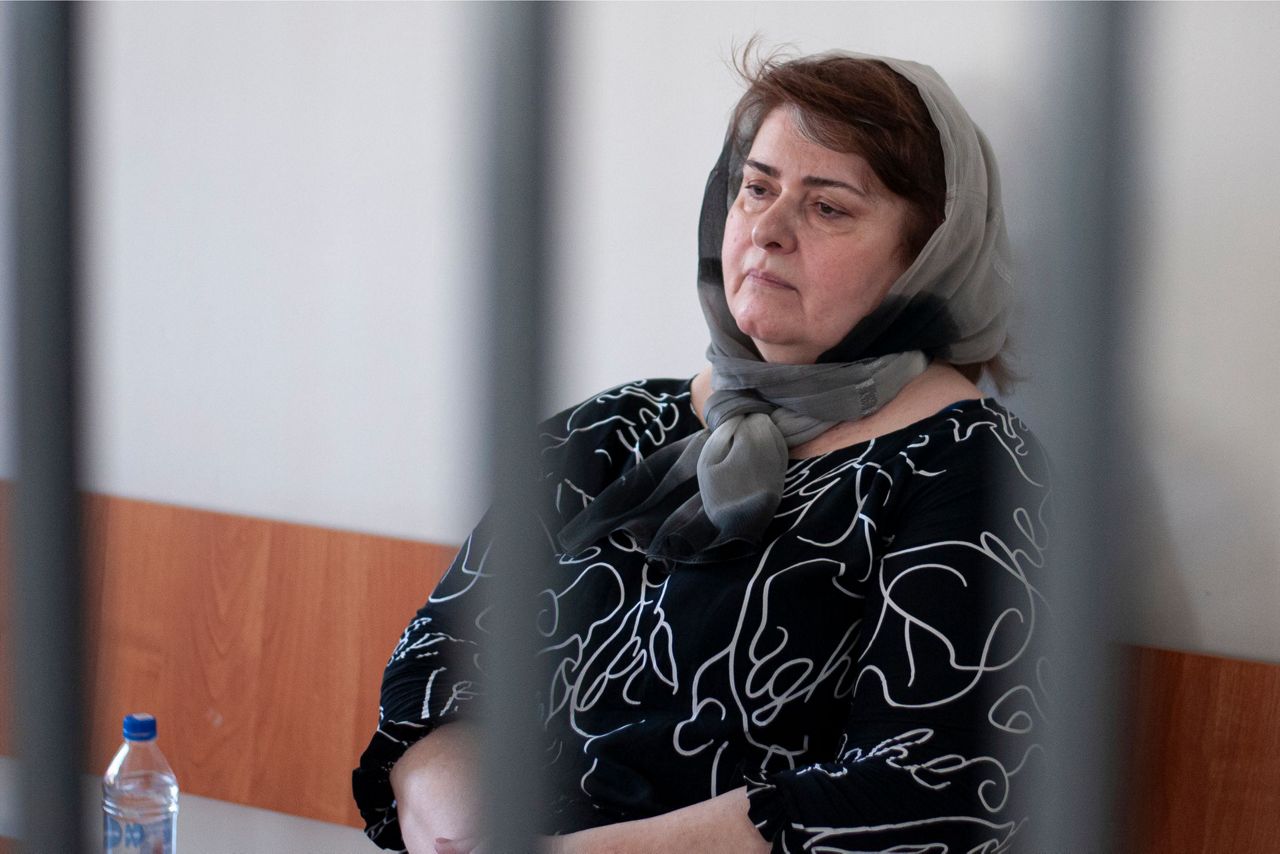MOSCOW (AP) — Masked assailants in the Russian province of Chechnya attacked and brutally beat a prominent investigative reporter and a lawyer Tuesday, an assault that highlighted a violent pattern of rampant human rights abuses in the region.
Novaya Gazeta journalist Elena Milashina and lawyer Alexander Nemov were attacked soon after they arrived in Chechnya to attend the trial of Zarema Musayeva, the mother of two local activists who have challenged Chechen authorities.
Just outside the airport, their vehicle was blocked by several cars and they were attacked by a dozen unidentified masked attackers who beat them with clubs, put guns to their heads and broke their equipment.
Novaya Gazeta said Milashina sustained a concussion and had several fingers broken, but medics later determined her fingers weren't fractured. Nemov had a deep cut on his leg. They were taken to a hospital in Chechnya's main city, Grozny, and later to Beslan in the nearby region of North Ossetia. The newspaper said Milashina repeatedly lost consciousness.
Speaking from a hospital bed in a video, Milashina said the attack looked like a “classic abduction.”
“They threw the driver out of the car, got in, bent our heads down, tied my hands, forced me down to my knees and put a gun to my head,” she said, adding that the assailants were visibly nervous and had trouble tying her hands.
A photo from a hospital showed her talking over the phone, her face covered by green antiseptic the attackers doused on her. She had multiple bruises on her head shaved clean by the assailants.
Officials were considering their medical evacuation to Moscow.
In a later interview with Russian rights group Team Against Torture, which works in Chechnya and other regions, Milashina recalled the assailants telling Nemov: ‘You are defending too many people here. There is no need to defend anyone here."
Milashina said the assailants threatened to cut her fingers if she refused to give a password to unlock her phone and then beat her on her fingers with a plastic tube. "It was very painful. It felt like a burn," she said.
The attackers grabbed their equipment but didn't touch cash and other valuables, Milashina said.
Nemov said the attackers threatened to kill him and told him to plead for mercy as they put a pistol to his head.
Milashina said Nemov believed that they may have been shadowed since they boarded their Chechnya-bound flight in Moscow.
Kremlin spokesman Dmitry Peskov said in a conference call with reporters that Russian President Vladimir Putin was informed about the incident. Peskov added that “it was a very serious assault that warrants energetic measures” from law enforcement agencies.
Other Russian agencies, including the human rights ombudsperson, condemned the attack and called for an investigation.
Alexander Bastrykin, head of the Investigative Committee, the country’s top state criminal investigation agency, ordered a probe into the attack.
Chechnya’s Moscow-backed strongman leader Ramzan Kadyrov, who branded Milashina a “terrorist" in the past, said the regional authorities had launched an investigation and would track down the attackers.
The strong statements and a quick response from Russian authorities contrasted with a muted official reaction to previous attacks on Milashina and other journalists and human rights activists in Chechnya.
Milashina has long exposed human rights violations in Chechnya and has faced threats, intimidation and attacks. In 2020, she and a lawyer accompanying her were beaten by a dozen people in the lobby of their hotel. Last year, she temporarily left Russia after she was threatened by Chechen authorities.
She has won widespread acclaim for her investigative reporting, which included exposing the torture and killings of gay people in Chechnya and other abuses by feared Chechen paramilitary forces.
In 2013, Milashina received an International Women of Courage Award from the U.S. Department of State.
Amnesty International strongly condemned Tuesday's attack on Milashina and Nemov and urged Russian authorities to track down the assailants. “This callous crime exemplifies the extreme dangers that those who fight injustice and defend human rights face in a context of open hostility from the authorities and total impunity for perpetrators,” Marie Struthers, Amnesty International’s Eastern Europe and Central Asia Director, said in a statement.
Hours after Tuesday's attack, a court in Grozny sentenced Zarema Musayeva to 5½ years in prison on charges of insulting and violently resisting police, an accusation that rights groups have rejected as trumped up.
Despite Tuesday's attack, Milashina vowed to travel again to Chechnya to attend Musayeva's appeal hearing.
Musayeva had been in custody in Grozny since Chechen security forces grabbed her from her home in the Volga River city of Nizhny Novgorod and drove her to Chechnya in January 2022. Her husband, a former judge, and her two activist sons have left Chechnya. Kadyrov has accused the Musayev family of having terrorist links and said they should be imprisoned or killed if they offered resistance.
The Kremlin has relied on Kadyrov to keep the North Caucasus region stable after two devastating separatist wars. International rights groups have accused his security forces of extrajudicial killings, torture and abductions of dissenters, but Russian authorities have stonewalled repeated demands to investigate and end abuses in Chechnya.
Anna Politkovskaya, a widely acclaimed investigative Novaya Gazeta reporter who exposed human rights abuses in Chechnya, was shot dead in the elevator of her Moscow apartment building on Oct. 7, 2006. A Russian court convicted the gunman and three other Chechens involved in the killing along with a former Moscow police officer who was their accomplice, but investigators have failed to determine who ordered the killing.
On July 15, 2009, Natalia Estemirova, a leading rights defender in Chechnya and a strong critic of Kadyrov, was abducted and later found dead with shots to the head and chest. Her murder has remained unsolved.
Kadyrov's clout has risen further since the start of Moscow’s campaign in Ukraine, where his security forces have played an active part. The Kremlin scrambled fighters from Chechnya to help protect Moscow from an abortive mutiny launched by mercenary chief Yevgeny Prigozhin 11 days ago, but some commentators warned that Kadyrov's ambitions could also potentially pose a threat to federal authorities.
Despite the Kremlin's support, Kadyrov reportedly has had tense relations with some of Russia's law enforcement agencies. The angry reaction from officials and Kremlin-connected lawmakers who called for a tough response could signal authorities' intentions to cut the Chechen strongman down to size.
Copyright 2023 The Associated Press. All rights reserved. This material may not be published, broadcast, rewritten or redistributed without permission.





